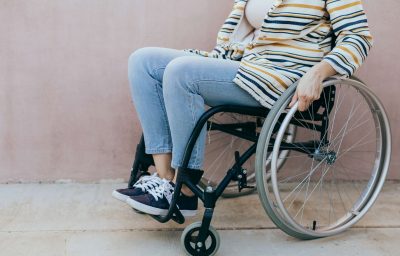
The Disability Resource Center at the University of Florida is recruiting full-time American Sign Language interpreters. The new hires will interpret classes for students who are deaf and hard of hearing in addition to supporting campus events.
UF will be the only university in Florida with several full-time interpreters, setting a new precedent for campus accessibility standards, said Jenna Gonzalez, interim director of the Disability Resource Center.
“I want folks to know that if you really, truly want to be a Gator, you can come and get your access needs met,” Gonzalez said. “This is another way to show that we are living our values. And I think it will help students know to apply to UF because this is what we represent on this campus – pioneering access.”
The Disability Resource Center, often abbreviated DRC, was established in 1973 by a group of graduate students at UF who led the first accessibility assessment of buildings on campus. Today, DRC learning specialists and accommodations experts ensure more than 4,500 students with disabilities can comfortably access UF classes, events and buildings. UF was recently awarded top marks for wheelchair accessibility on campus.
Gonzalez said the number of students the DRC serves has more than doubled since 2016. In turn, the variety of student accommodations has steadily grown.
“I think this has been a long time coming,” said Amanda Jackson, assistant director for assistive technology services. “There hasn’t been this need because we didn’t have a student population to serve, but now we do and we are committed to ensuring they thrive at UF.”
Currently, students who are deaf or hard of hearing rely on her to contract with private agencies for sign language interpreters. Providing students the same interpreters throughout their time at UF enables them to build relationships with interpreters – and gives interpreters an opportunity to develop expertise translating highly technical language.
But Jackson can’t guarantee students will work with the same interpreters for the duration of their program. Moreover, interpreters with experience translating technical language typically commute from up to two hours away, which limits their availability for short-notice requests adds transportation expenses, she said.
The DRC has enlisted disability advocates, education specialists and Deaf culture scholars to recruit interpreters with experience signing complex language in classroom, laboratory and clinical settings. The new hires will also ensure students work one-on-one only with interpreters they’ve met before.
The open positions will remain posted until Sunday, April 11 at 11:55 p.m.








